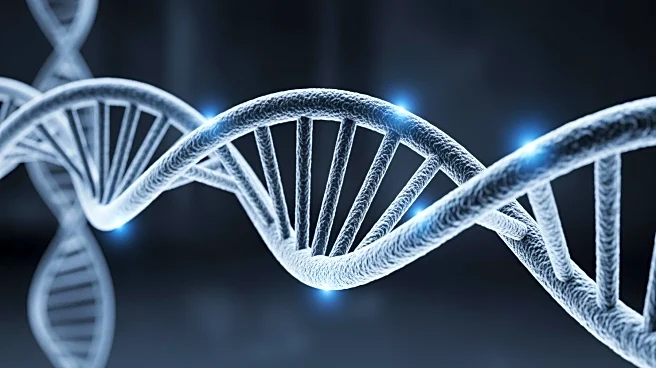What's Happening?
A comprehensive study has analyzed circulating tumor DNA (ctDNA) in Japanese patients with advanced urothelial carcinoma, revealing significant genomic alterations. The study, part of the SCRUM-Japan MONSTAR-SCREEN
project, compared genomic data from Japanese and US-based cohorts, highlighting differences in mutation prevalence due to ancestry. Key findings include the identification of high tumor fraction (TF) and mutations in TP53 and TERT as markers of poor prognosis. The study emphasizes the importance of plasma-based testing, especially when tumor tissue is insufficient, and suggests that ctDNA can guide clinical decision-making and treatment monitoring. The research underscores the need for diverse population inclusion in genomic studies to ensure broad clinical applicability.
Why It's Important?
The study's findings have significant implications for the treatment and management of urothelial cancer. By identifying genomic markers associated with poor prognosis, healthcare providers can better stratify patients and tailor treatment plans. The use of ctDNA for non-invasive monitoring offers a promising approach to adapt therapies based on emerging genomic targets, potentially improving patient outcomes. Additionally, the study highlights the importance of considering genetic diversity in research, which can lead to more effective and personalized treatment strategies across different populations. This research could pave the way for advancements in precision oncology, enhancing the ability to predict and improve treatment responses.
What's Next?
Future research is expected to focus on validating these findings across larger and more diverse cohorts. The integration of ctDNA analysis into routine clinical practice could become more prevalent, offering a non-invasive method to monitor disease progression and treatment efficacy. Additionally, the development of novel therapies targeting identified genomic alterations, such as KRAS mutations, is anticipated. As precision oncology continues to evolve, healthcare systems may increasingly adopt liquid biopsy techniques to enhance treatment personalization and improve survival rates for patients with urothelial cancer.
Beyond the Headlines
The study raises important ethical considerations regarding the inclusion of diverse populations in genomic research. Ensuring that genetic studies reflect a wide range of ancestries can help avoid disparities in healthcare outcomes and improve the applicability of findings across different demographic groups. Furthermore, the use of ctDNA as a prognostic tool highlights the potential for more personalized medicine, which could lead to shifts in how cancer treatments are developed and administered. This approach may also influence healthcare policy, encouraging investment in technologies that support precision medicine.









